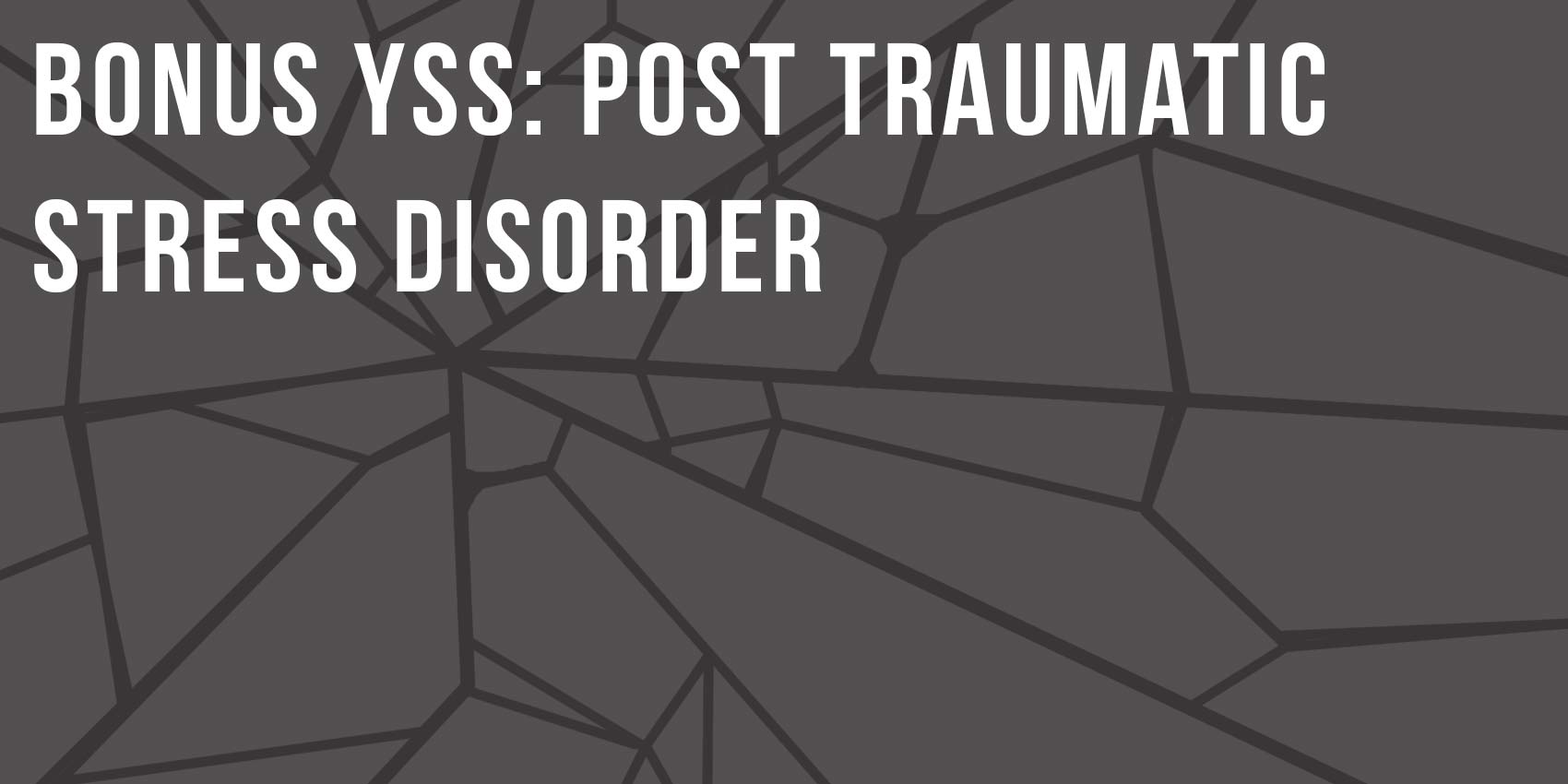27 Feb Bonus YSS: Post-traumatic stress disorder

You may have heard of the term PTSD – or Post Traumatic Stress Disorder. Just what is it and what does it have to do with trauma? PTSD is a condition that can occur when people have experienced a traumatic event and have yet to resolve it. It is frequently associated with soldiers who return from war having seen and experienced the most horrific things. But soldiers aren’t the only ones who experience PTSD. Anyone who has been through a shocking, violent or dangerous event can develop PTSD.
PTSD has four major symptoms:
- Uncontrollable re-experiencing of the traumatic event. This might be through flashbacks, nightmares or intrusive thoughts about the event. This feature is one of the defining features of PTSD.
- Over-arousal. This can mean being super jumpy or super sensitive to sounds. It can also mean feeling on edge all of the time or being easily startled or angered.
- Avoidance behaviors. This means to avoid anything that reminds you of the event, including even your thoughts. Many people avoid their thoughts through destructive means such as drugs and alcohol or self-harm.
- Cognitive and mood disruptions. Cognitively, this means difficulty concentrating and/or having negative thoughts. Emotionally this means feeling guilty, anxious, depressed or uninterested in life.
Just like with mental illness, effective treatments are available for PTSD. If you believe that you or anyone you know is suffering from PTSD please seek help immediately. With treatment, PTSD can actually become PTSG – Post Traumatic Stress GROWTH. With PTSG, people are able to process their traumatic events and find meaning in them, leading them to view the world differently and grow from their experiences. People with PTSG often report feeling a greater sense of purpose and appreciation in their lives. Such growth does not mean people haven’t suffered (or are not still suffering) and it certainly does not imply that trauma is good, it is just an experience people can have that helps them feel more positive. Not everyone will experience PTSG, but by seeking help, you can certainly strive toward it.




Answer the post question here
What's being said